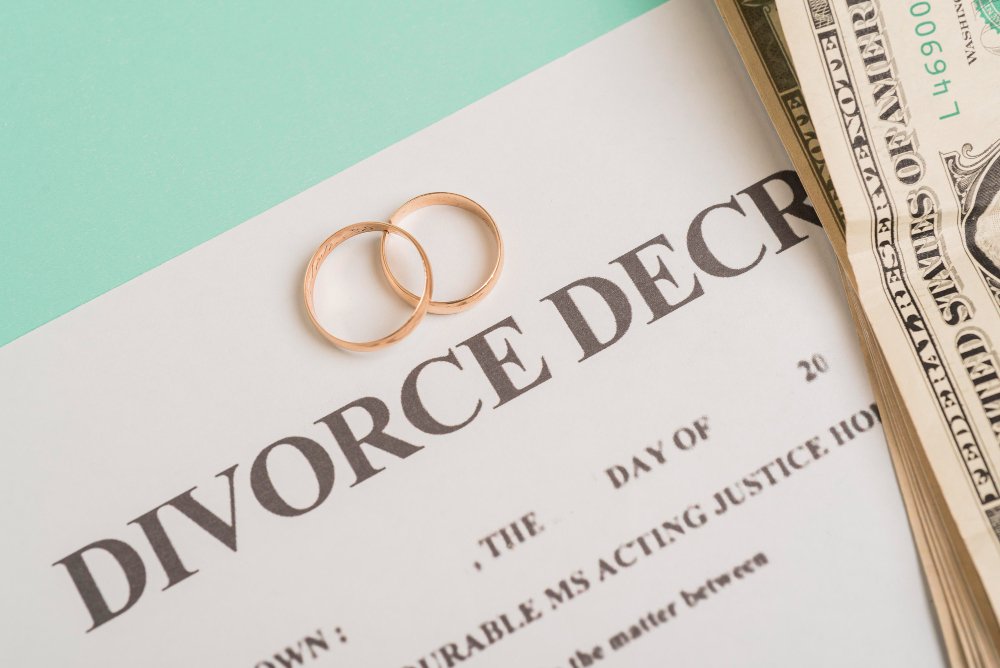Get a Fair Divorce Settlement with a Lawyer
Going through a divorce can be confusing and stressful. There’s a lot to figure out, such as understanding legal complexities, making arrangements for kids (if you have them), and figuring out finances. If you live in an area like Newton, a Newton divorce lawyer can help ensure things are done fairly. This short blog will explain how a lawyer can help you through your divorce, answer some common questions, and give you some tips on what you can do to prepare.
Why Consider a Lawyer for Your Divorce?

Expert Guidance: Divorce laws vary by state; each jurisdiction has specific regulations and precedents. A lawyer with expertise in your area can provide invaluable legal advice and ensure you understand your rights and obligations. They can help interpret complex legal jargon, ensuring you’re fully aware of the implications of each decision you make.
Protecting Your Assets: Equitable distribution of marital property is crucial in a divorce. A lawyer can help identify marital and separate assets, negotiate a fair division, and protect your interests in complex financial situations such as businesses, inheritances, and retirement accounts. They will also ensure that any hidden assets are uncovered and considered in the settlement.
Child Custody and Support: If children are involved, determining child custody arrangements and calculating child support requires careful legal navigation. A lawyer can advocate for your child’s best interests, ensuring a fair and enforceable agreement considering their well-being, education, and living arrangements.
Spousal Support: Spousal support (alimony) determinations depend on various factors, including the length of the marriage, the standard of living during the marriage, and each spouse’s financial situation. A lawyer can assess your circumstances and advocate for an appropriate support arrangement considering your financial needs and long-term well-being.
Emotional Detachment: Negotiations during a divorce can be emotionally charged and contentious. A lawyer can act as a neutral mediator, communicating with your spouse’s attorney and ensuring objective decision-making. This emotional detachment is essential for reaching a fair and equitable settlement.
Minimizing Conflict: Lawyers can guide you towards alternative dispute resolution methods such as mediation, potentially reducing legal costs and emotional stress. Mediation can be more amicable and efficient in resolving disputes, allowing both parties to reach mutually beneficial agreements.
Paperwork and Procedures: Divorce settlements involve significant paperwork and court procedures. Lawyers ensure all documents are filed correctly and within deadlines, avoiding potential delays or complications. If necessary, they also represent you in court and handle all interactions with the judicial system.
How to Prepare for Your Divorce
Gather Financial Records: Collect bank statements, investment records, pay stubs, tax returns, mortgage statements, and other financial documents. This information will provide a clear picture of your financial situation and help your lawyer identify marital and separate assets.
Understand Your Marital Assets and Debts: Make a comprehensive list of all assets and debts acquired during the marriage. This list should include real estate, vehicles, bank accounts, retirement accounts, credit card debts, and loans. Understanding the full scope of your financial situation is crucial for equitable distribution.
Child Custody Considerations: Develop a preliminary plan for child custody arrangements, considering factors like physical living arrangements, school schedules, and daily routines. Consider what arrangement would be in the best interests of your children, and be prepared to discuss this with your lawyer.
Spousal Support Expectations: Consider your financial needs and your spouse’s earning capacity if spousal support concerns you. Be realistic about your living expenses and future financial needs. Your lawyer can help you understand what you might be entitled to and advocate for a fair amount.
Document Important Agreements: If you and your spouse have made verbal agreements regarding assets, child custody, or spousal support, document them in writing. This documentation can be a reference point during negotiations and help prevent misunderstandings.
The Divorce Process: What to Expect

Filing for Divorce: The divorce process begins with filing a petition for divorce in your local court. Your lawyer will help you prepare and file this document, ensuring it meets all legal requirements. The petition will outline your grounds for divorce and any initial requests regarding property division, child custody, and support.
Serving the Divorce Papers: Your spouse must be formally served with the divorce papers after filing the petition. This step ensures that your spouse is aware of the proceedings and has an opportunity to respond. Your lawyer can arrange for a process server to handle this task.
Response from Spouse: Your spouse will have a set period to respond to the divorce petition. If they agree with the terms, the process may proceed more smoothly. Negotiations or court proceedings may be necessary to resolve disputes if they contest any aspects.
Discovery Process: During the discovery phase, both parties exchange information and documents relevant to the divorce. This process includes depositions, interrogatories, and requests for documents. Your lawyer will guide you through this phase, ensuring you provide the necessary information and receive relevant details from your spouse.
Negotiations and Mediation: Many divorces are resolved through negotiations rather than trial. Your lawyer will represent your interests during these discussions, striving for a fair settlement. Mediation involves a neutral third party who helps facilitate agreements, potentially reducing conflict and legal costs.
Trial (if necessary): Your case may go to trial if negotiations and mediation fail to produce an agreement. During the trial, both parties present their arguments and evidence before a judge, who will decide on property division, child custody, and support. Your lawyer will advocate for your interests throughout this process.
Finalizing the Divorce: The court will issue a final divorce decree once all issues are resolved. This document outlines the terms of your divorce, including property division, child custody, and support arrangements. Your lawyer will review the decree to ensure it accurately reflects the agreed-upon terms and advise you on any final steps.
Tips for a Smoother Divorce Process
Stay Organized: Keep all documents and correspondence about your divorce organized and accessible. This organization will help you stay on top of deadlines and ensure you provide your lawyer with the necessary information promptly.
Communicate Openly with Your Lawyer: Maintain open and honest communication with your lawyer. Please provide them with all relevant information, including any concerns or changes in your situation. Transparency will enable your lawyer to represent you effectively.
Please focus on the Big Picture: Divorce can be emotionally draining, but it’s essential to stay focused on your long-term goals. Avoid getting caught up in minor disputes and concentrate on securing a fair settlement that ensures your financial stability and well-being.
Consider Your Children’s Needs: If you have children, prioritize their needs and well-being throughout the divorce process. Work with your spouse and lawyer to create a custody arrangement that supports your children’s emotional and physical health.
Take Care of Yourself: Divorce is a significant life change, and your mental and physical health is important. Seek support from friends, family, or a therapist to help you navigate this challenging time.
Conclusion
Divorce is a life-altering event that requires careful consideration and expert guidance. While emotional support from friends and family is invaluable, navigating the legal complexities of divorce necessitates skilled and experienced legal counsel. Hiring a divorce lawyer ensures you understand your rights, protect your financial interests, and secure a fair settlement considering your present and future needs.
By educating yourself about the process and actively participating in legal discussions with your lawyer, you can confidently navigate this challenging time and ensure a more secure and stable path forward. Remember, a well-prepared and informed approach to your divorce can make a significant difference in achieving a fair outcome and setting the stage for a positive future.
Common Questions About Divorce Lawyers
How do I choose the right divorce lawyer?
Selecting the right divorce lawyer is crucial for a successful outcome. Look for a lawyer with experience in family law and a solid reputation in your community. It’s also important to find someone you feel comfortable with, as you will be discussing personal and sensitive issues. Many lawyers offer free consultations, allowing you to meet them and ask questions before deciding.
How much does a divorce lawyer cost?
The cost of a divorce lawyer can vary widely depending on their experience, the complexity of your case, and your geographic location. Some lawyers charge an hourly rate, while others may offer a flat fee for specific services. It’s essential to discuss fees upfront and understand the payment structure. Additionally, consider the potential long-term financial benefits of hiring a skilled lawyer to secure a favourable settlement.
What should I bring to my initial consultation?
For your initial consultation, bring any relevant documents such as financial records, prenuptial agreements, and any correspondence with your spouse regarding the divorce. A list of your assets, debts, and questions for the lawyer will also be helpful. This preparation will enable the lawyer to assess your situation accurately and provide informed advice.
Can we use the same lawyer for a divorce?
In most cases, it is not advisable for both parties to use the same lawyer due to potential conflicts of interest. Each spouse should have independent legal representation to protect their interests. However, a single lawyer may facilitate the process by drafting and filing necessary documents in uncontested divorces, though they will only represent one party.

















